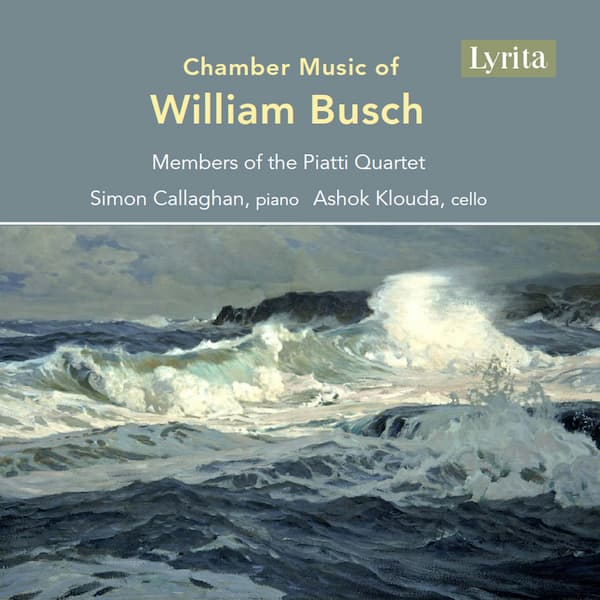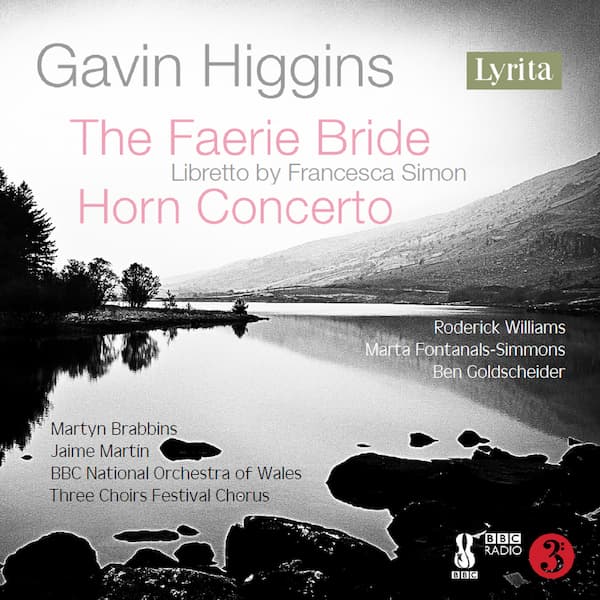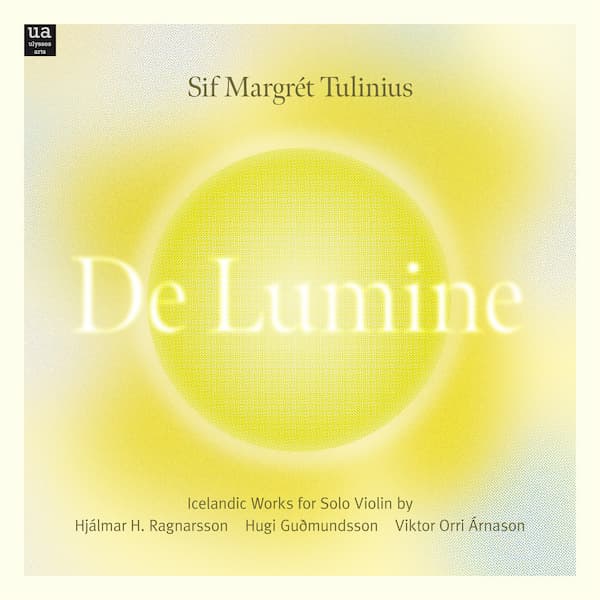British composer Kenneth Jones (1924–2020) is celebrated in a new release from Lyrita Records. Jones’ Chamber Music, as performed by soloists from the London Mozart Players, brings together his first award-winning works from 1950 to his 1980 work, Quinquifid, for brass quintet.
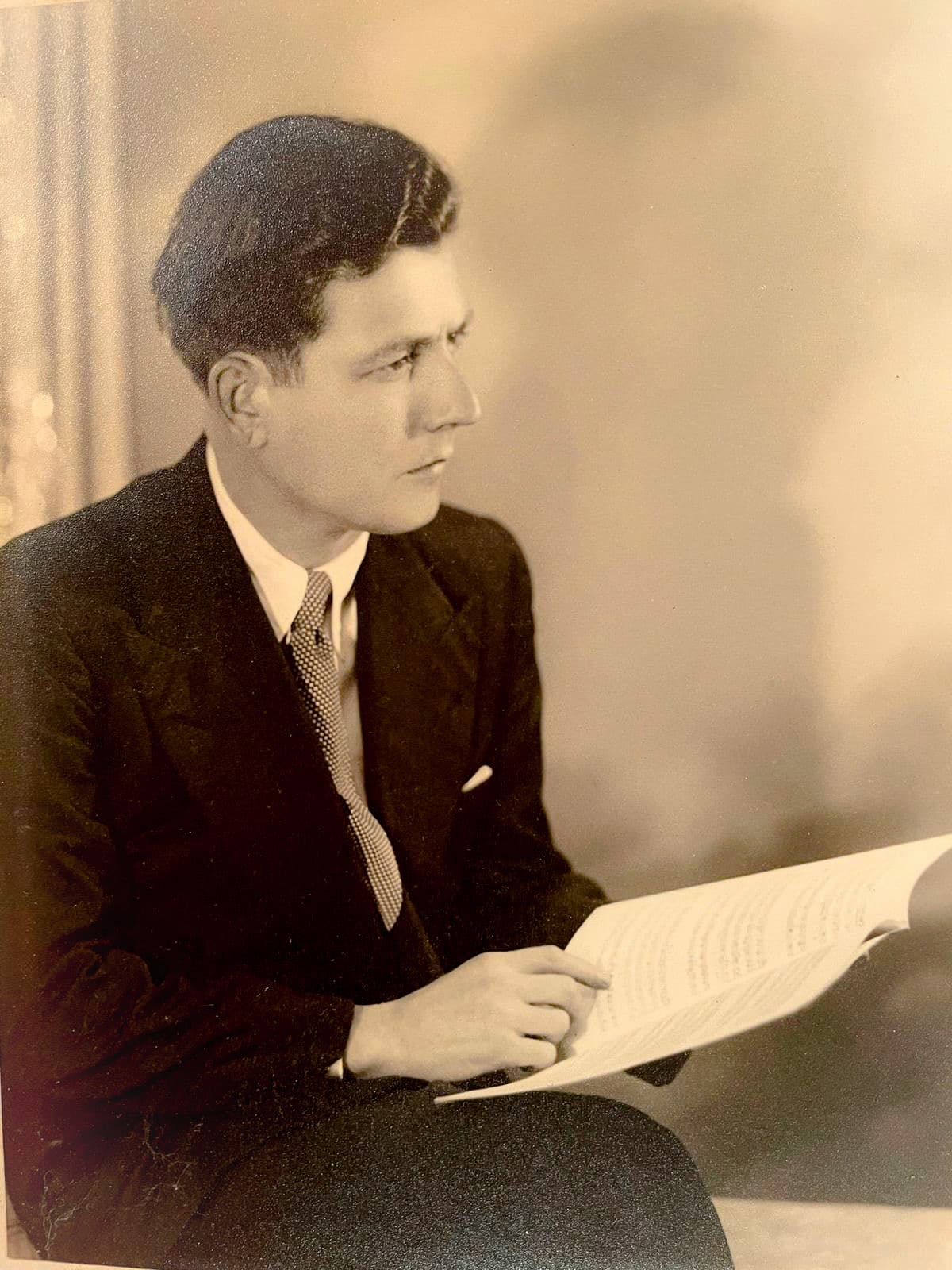
Kenneth V. Jones
Jones, who started composing hymn tunes at age 10, was encouraged in his music by Sir Sydney Nicholson, first as a chorister under the conductor and then for his debut at age 11 as a harpsichordist in one of Nicholson’s children’s operas.
Nicholson encouraged his attendance at King’s School, Canterbury, where he continued his music education. At age 17, he became staff member of St. Michael’s College, Tenbury Wells, and at age 18, he volunteered for the RAF, doing his flight training in South Africa. After the war, he enrolled in the Royal College of Music, where he studied composition (R.O. Morris, Bernard Stevens, and Gordon Jacob), theory, piano (Thornton Lofthouse), organ (Harold Darke), and conducting (Richard Austin). He was awarded the Royal Philharmonic Prize for composition in his final year at the RCM. Another award permitted him a year abroad in Italy, where he met Igor Stravinsky, Aaron Copland, and Jacques Ibert. He was also able to lead performances of his music in Italy.
On his return to Britain, he began teaching at the RCM, being appointed Professor of music in 1958. While still a student at RCM, he was the music assistant on Michael Powell’s The Tales of Hoffmann, and this association with cinema continued, both for commercial cinema and for 14 films done by the British Transport Film Unit. He also wrote incidental music for the theatre, including the 1966 Oxford University Dramatic Society production of Marlow’s Dr Faustus, with Richard Burton and Elizabeth Taylor leading a student cast.
By the 1960s, in addition to his work at the RCM, Jones was leading a number of choirs, writing music for six films a year (eventually writing over 80 film scores), and founded the Wimbledon Symphony Orchestra, which he led for 10 years. He admitted this was all a bit too much but, at the same time, thought it the best experience a composer could have. ‘The best advice I can give today’s youth is to work – just work – and enjoy it…’, he said.
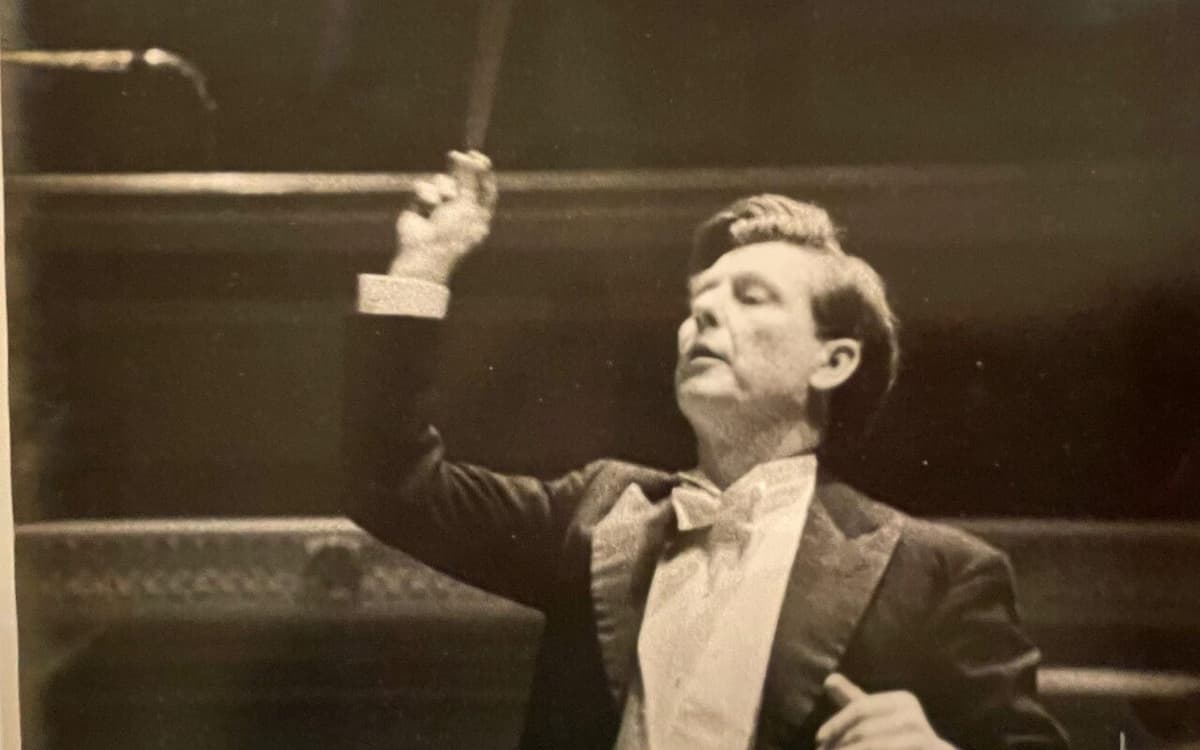
Kenneth V Jones conducting the Wimbledon Symphony Orchestra, 1960s
His Quintet for Piano and String Quartet, op. 26, was written in 1967. It puts the piano in constant dialogue with the strings, and each player has his turn to shine. The final Allegro combines material from the two earlier movements to come to a brilliant ending.
Kenneth Jones: Quintet for Piano and String Quartet, Op. 26, III. Allegro
In addition to this recording of Jones’ chamber music, Nimbus Music Publishing, in association with the composer’s family, is producing the scores for his Piano Quintet, Op. 26; String Quartet, Op. 6; Pianoforte Sonata, Op. 4; Wind Quintet No. 2, Op. 2; and the Quinqifid Brass Quintet (1981).
This recording also includes some of Jones’ writing for the Associated Board of the Royal Schools of Music. It was at his suggestion that the ABRSM include contemporary composer’s works in the graded examination syllabus and several of his short character pieces remain on the ABRSM syllabus today. Works from Grade I (Valley Song) to Grade 5 (The Day Dawns on the Breakwater) are here performed by members of Ensemble V.
Jones died in December 2020 and was able to listen to the first edit of this recording before his death.
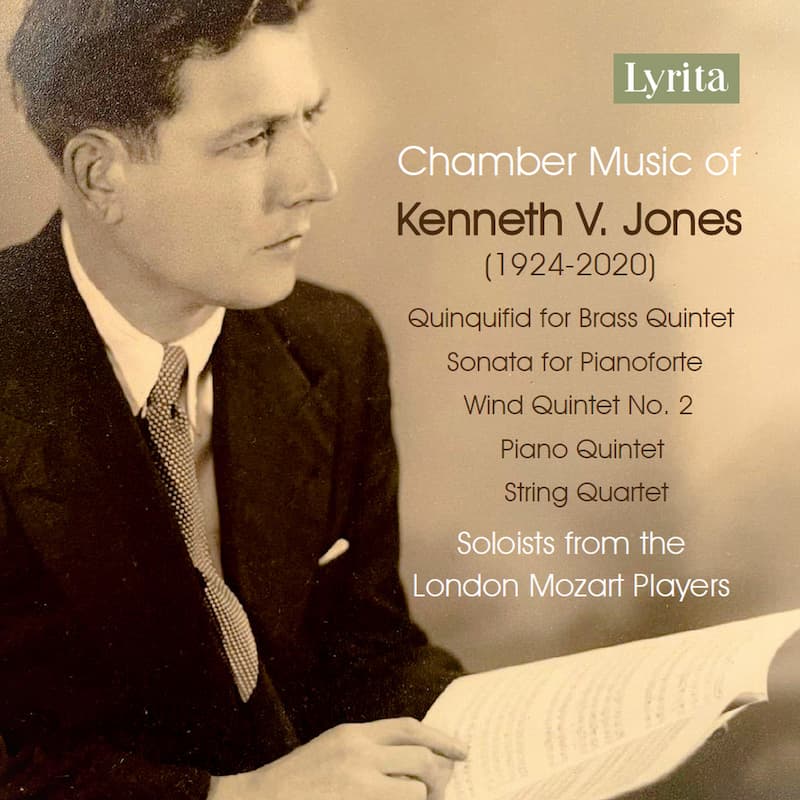
Kenneth V. Jones: Chamber Music of Kenneith V. Jones
Lyrita Records, SRCD 434
Release date: 3 May 2024
Official Website
For more of the best in classical music, sign up for our E-Newsletter

